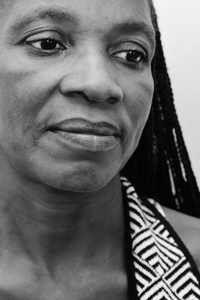Latest News Archive
Please select Category, Year, and then Month to display items
12 October 2020
|
Story Arina Engelbrecht
|
Photo Supplied
 Arina Engelbrecht from Organisational Development and Employee Well-being believes physical activity has a number of benefits for one’s health, including stress relief.
Arina Engelbrecht from Organisational Development and Employee Well-being believes physical activity has a number of benefits for one’s health, including stress relief.
Being physically active plays a big role in preventing the development of mental-health problems and in improving the quality of life of people experiencing mental-health problems.
Treatment for depression
Physical activity can be an alternative treatment for depression. It can be used as a stand-alone treatment or in combination with medication and/or psychological therapy. It promotes all kinds of changes in the brain, including neural growth, reduced inflammation, and new activity patterns are formed that promote feelings of calm and well-being. It releases endorphins – powerful chemicals in the brain that energise your spirit and make you feel good.
Physical activity can be very effective in relieving stress. Research in adults has found that physically active individuals tend to have lower stress levels compared to individuals who are less active. It also leads to improved sleep. When a person sleeps better and feels more rested, overall quality of life improves. They cope better with daily life stressors.
Reduce Alzheimer's risk
Regular physical activity can reduce your risk of developing Alzheimer's disease by up to 50%. It can also slow down further deterioration in those who have already started to develop cognitive problems. It stimulates the brain’s ability to maintain old connections as well as to make new ones.
A study asked people to rate their mood immediately after periods of physical activity (e.g. going for a walk/run, cycling, doing housework) and periods of inactivity (e.g. reading a book or watching television). Researchers found that participants felt more content, more awake, and calmer after being physically active compared to after periods of inactivity.
In conclusion, people who are physically active feel a sense of well-being, feel more energetic throughout the day, sleep better at night, have sharper memories, and feel more relaxed and positive about themselves and their lives.
“Being physically active not only changes your body, it changes your mind,
attitude, and your mood.” – Arina Engelbrecht
Mekondjo! National exhibition to reveal the courage, determination, repression and torture of PLAN
2014-05-21
|

Angelina Angula ex PLAN soldier injured during the 1978 Cassinga attack - photo by John Liebenberg. |
A pioneering exhibition by John Liebenberg and Christo Doherty is about to open on the Bloemfontein Campus. ‘Mekondjo! born in the struggle for Namibia’ gives South Africans their first insight into the lives of the men and women who fought against the SADF in the bush of Northern Namibia and Angola from 1966 – 1989.
This public exhibition presents eleven portraits of People’s Liberation Army veterans in the process of speaking about and coming to terms with their very different experiences in the Namibian War of Liberation.
When the People’s Liberation Army (PLAN) returned to Namibia after the UN-supervised elections of 1989, it had been fighting against South African rule for 23 years. Formed in 1966 as the armed wing of the South West African Peoples’ Organisation, PLAN had developed from a handful of poorly armed guerrillas to a sophisticated mechanised force. These soldiers fought alongside Angolan, Russian and Cuban soldiers against the SADF and UNITA. Since SWAPO’s election victory, the new government has mythologised the heroism of the armed struggle. The stories of the individual PLAN fighters’ experiences are only now being articulated, though.
Their stories are of great courage and determination against often impossible odds; but also of repression, torture, and disastrous decisions by the PLAN leadership.
The exhibition will be on display from Thursday 22 May to Friday 23 May for the duration of the Silence after Violence conference. The conference is hosted by the UFS Institute for Reconciliation and Social Justice and the Center for Holocaust Studies at the University of Vermont.
Date: Thursday 22 May and Friday 23 May 2014
Place: Centenary Complex, Reitz Hall, Bloemfontein Campus
Exhibition Introduction: Thursday 22 May, 14:00 – 15:30
Other viewing times: intermissions during the Silence after Violence programme
The public is welcome to attend.
* Spotlight photo: PLAN commissioner Nkrumah Mushelenga, Windhoek 2013 – photo by John Liebenberg